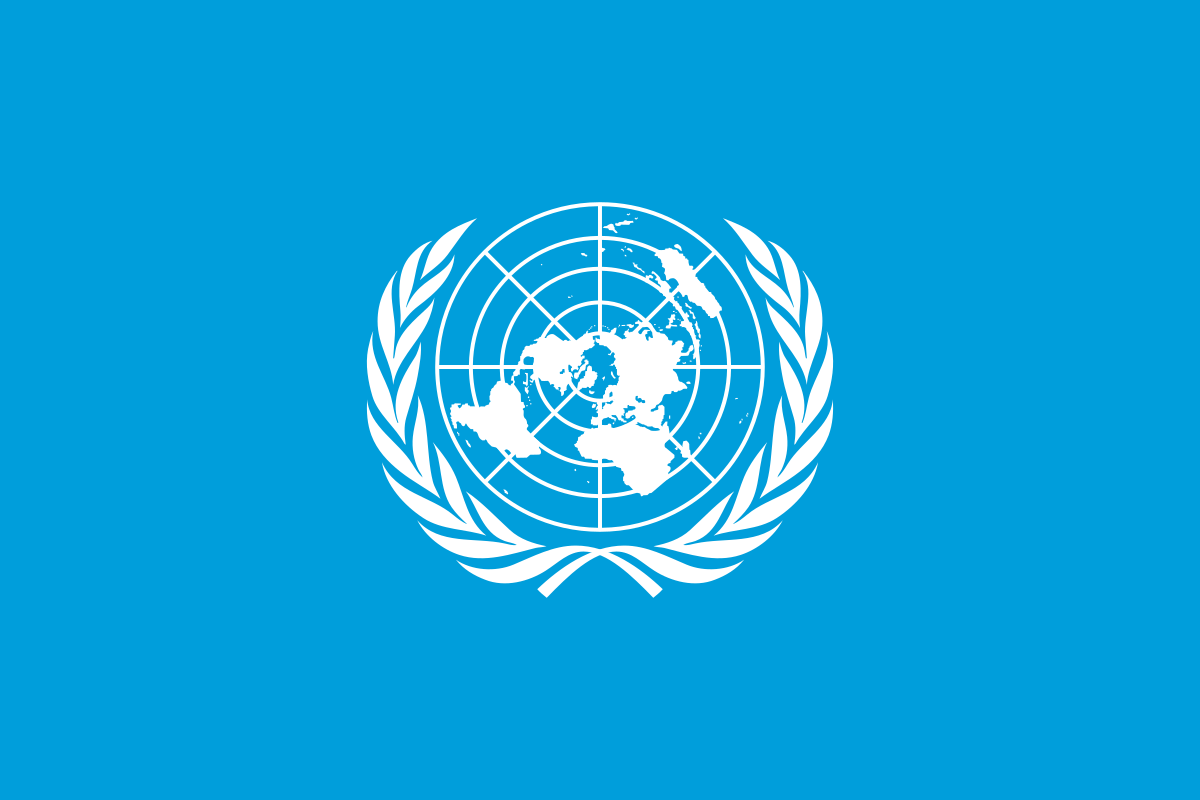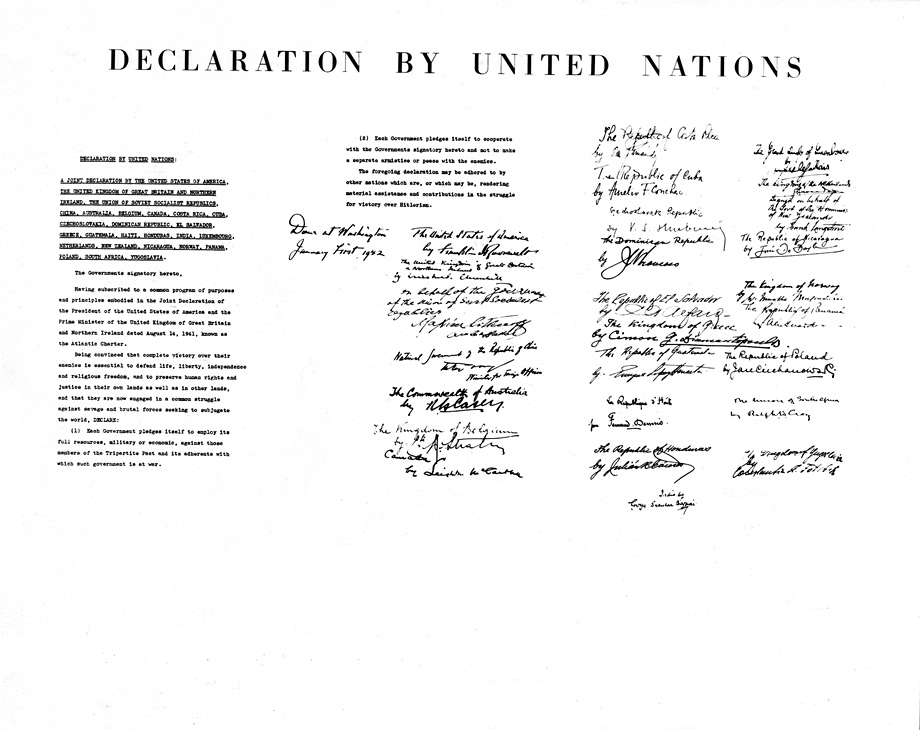UNITED NATIONS (UN)

- The UN was born out of the ashes of yet another international organisation created with the intention of keeping war away.
- The League of Nations was created in June 1919, after World War I, as part of the Treaty of Versailles.
- However, when the Second World War broke out in 1939, the League closed down and its headquarters in Geneva remained empty throughout the war.
- Consequently, in August 1941, American President Franklin D. Roosevelt and British Prime Minister Winston Churchill held a secret meeting aboard naval ships in Placenta Bay, located on the southeast coast of Newfoundland, Canada.
- The heads of the two countries discussed the possibility of creating a body for international peace efforts and a range of issues related to the war.
- Together they issued a statement that came to be called the Atlantic Charter. It was not a treaty, but only an affirmation that paved the way for the creation of the UN.
- It declared the realisation of “certain common principles in the national policies of their respective countries on which they based their hopes for a better future for the world.”
- The United States joined the war in December 1941, and for the first time the term ‘United Nations’ was coined by President Roosevelt to identify those countries which were allied against the axis powers – Germany, Italy and Japan. On January 1, 1942, representatives of 26 allied nations met in Washington DC to sign the declaration of the United Nations, which basically spelt out the war objectives of the Allied powers.
- India, which was under British colonial rule at the time, was also among these nations

The United Nations (UN) has been a prominent international organization since its establishment in 1945. It has made significant achievements and faced challenges and failures throughout its history. Here are some notable achievements and failures of the United Nations:
Achievements:
-
Preventing World Wars: The UN was established after World War II with the primary aim of maintaining international peace and security. It has successfully prevented another world war on the scale of the two World Wars.
-
Humanitarian Aid: The UN, through agencies like UNICEF, the World Food Programme (WFP), and UNHCR, provides vital humanitarian aid, including food, shelter, and medical assistance, to people in need around the world.
-
Peacekeeping Operations: The UN has undertaken numerous peacekeeping missions to help resolve conflicts and maintain peace in various parts of the world, including Cyprus, Lebanon, and Sierra Leone.
-
Decolonization: The UN played a significant role in decolonization efforts, helping newly independent countries gain international recognition and supporting the end of colonial rule in many parts of the world.
-
Universal Declaration of Human Rights: The UN adopted the Universal Declaration of Human Rights in 1948, setting forth fundamental human rights and freedoms. This document has been instrumental in shaping international human rights norms.
-
Development Goals: The UN established the Millennium Development Goals (MDGs) and later the Sustainable Development Goals (SDGs), which have provided a framework for addressing global poverty, inequality, and environmental challenges.
-
Environmental Protection: The UN has led efforts to address global environmental issues through conventions like the Paris Agreement on climate change, the Convention on Biological Diversity, and the Montreal Protocol on ozone depletion.
-
Public Health: The World Health Organization (WHO), a UN agency, has played a crucial role in international public health efforts, including vaccination programs, disease control, and pandemic response.
Failures and Challenges:
-
Ineffectiveness in Preventing Genocides and Mass Atrocities: The UN has faced criticism for its inability to prevent or effectively respond to genocides and mass atrocities, such as those in Rwanda (1994) and Bosnia (1992-1995).
-
Security Council Deadlocks: The UN Security Council, with its five permanent members (P5), often experiences deadlock due to conflicting national interests, hindering timely and decisive action on critical global issues.
-
Human Rights Violations by Member States: Some UN member states with poor human rights records have faced limited consequences for their actions, raising concerns about the UN's ability to enforce human rights norms.
-
Resource Constraints: The UN relies on contributions from member states, and funding shortfalls can hamper its ability to respond to crises effectively.
-
Lack of Global Consensus: Achieving consensus among 193 member states on complex issues can be extremely challenging, leading to slow progress or gridlock on important matters.
-
Peacekeeping Failures: Some UN peacekeeping missions have been criticized for not effectively preventing conflicts or abuses by peacekeepers themselves.
-
Israeli-Palestinian Conflict: The UN has struggled to mediate a lasting peace in the Israeli-Palestinian conflict, which remains unresolved after decades of efforts.
-
Complex Bureaucracy: The UN's complex bureaucratic structure can lead to inefficiency, redundancy, and lack of coordination in some areas.



